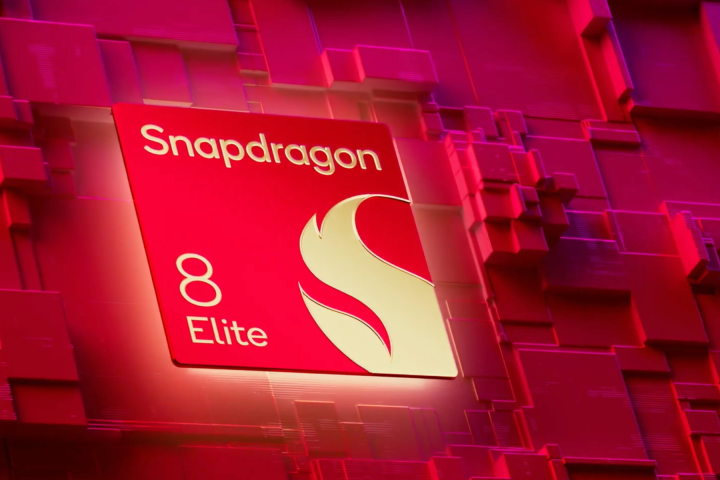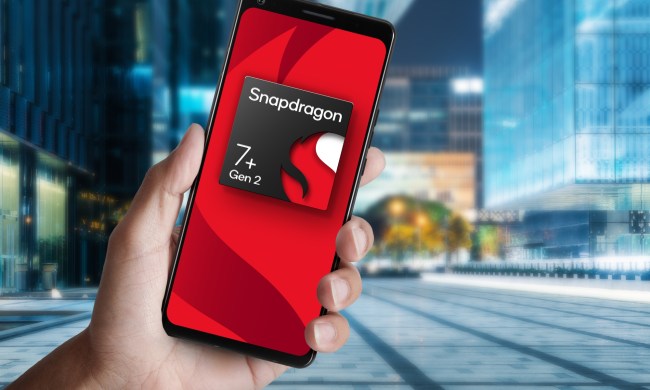Since we performance tested the new Qualcomm Snapdragon 8 Elite processor in the GT 7 Pro smartphone, Realme has insisted it has a fix coming for what it described as a “software compatibility” problem, which was causing the phone to overheat before it could complete a 20-minute gaming benchmark test.
Today, a software update containing the fix was delivered to our review model, with the promise it would solve the issue. Sure enough, after running the Solar Bay Stress Test — a 20-minute program that emulates gameplay with ray-traced graphics — in the 3DMark benchmark app, the Realme GT 7 Pro did indeed successfully complete it, giving us the performance figures we were missing during our initial comparison with the Qualcomm Snapdragon 8 Gen 3 in the Samsung Galaxy S24 Ultra.
Still running hot

However, this is not where the story ends. If Realme’s intention was to fix it so the GT 7 Pro could complete a 3DMark stress test, then its mission is complete. I’ve run all the available 20-minute stress tests in the app, and it has not failed so far. But what’s also clear is the phone still gets very hot during the process, and although it’s not giving up at the last moment — it previously failed after around 17 to 19 of the 20 total loops in the test — I’d imagine it’s right on the edge of doing so. This is also in an environment where the ambient temperature is quite low, and in hotter climates, it will likely fare worse. It gets hot during all the tests, but it’s the Solar Bay Stress Test that taxes it the most.
Even by loop 11, I consider the GT 7 Pro too hot to comfortably hold, especially along the chassis edges, and this is with the performance-enhancing GT Mode active. I certainly would not consider putting it against my cheeks to assess the temperature. The heat generated is reflected in the benchmarking app, which shows a temperature increase from 27 degrees Celsius to a toasty 45 degrees Celsius over the course of the Solar Bay Stress Test. By comparison, the Galaxy S24 Ultra reaches 42 degrees Celsius during the same test, with the phone nowhere near as hot and still comfortable to hold.

There’s further evidence the test is putting considerable strain on the phone, with the full Solar Bay Stress Test taking 15% from the Realme GT 7 Pro’s battery and 12% from the Galaxy S24 Ultra. I’ll reiterate that these extreme benchmarking tests do not reflect general use and instead show how a phone and processor perform during extended gameplay sessions, primarily when playing the latest graphically intensive games like Genshin Impact and Honkai: Star Rail. We run these tests on most phones we review, though, and it’s very rare for a phone to fail to complete the test or get as hot as the Realme GT 7 Pro.
What does this mean for the chip?

What does all this mean? It’s still difficult to say how much of the fault lies with Realme, the phone and its software, or the Snapdragon 8 Elite for the heat generation. But as Realme’s software update hasn’t cured or noticeably lessened the heat buildup, just made it possible for the benchmark test to finish, it is becoming more likely the incredibly powerful Snapdragon 8 Elite may get hotter than older chips in certain circumstances.
We contacted Qualcomm for comment and received the following statement from a Qualcomm spokesperson:
“The Snapdragon 8 Elite isn’t the cause of the overheating issue experienced by the Realme GT7 Pro early device samples, seeded to select press. Realme has identified the cause as a software compatibility issue with 3D Mark and is actively working on a resolution. Snapdragon Mobile Platforms continue to deliver exceptional user experiences, and we’re excited for consumers to enjoy the upcoming commercial devices powered by our technology.”
The Realme GT 7 Pro is the only smartphone we’ve tried with the Snapdragon 8 Elite inside, but others are expected soon, including the Asus ROG Phone 9 and the OnePlus 13. When these, and others, hit the scene, we’ll have a better idea of what’s going on with the processor expected to power most of 2025’s top Android phones, or whether Realme’s recent, otherwise very positive return has stumbled.



